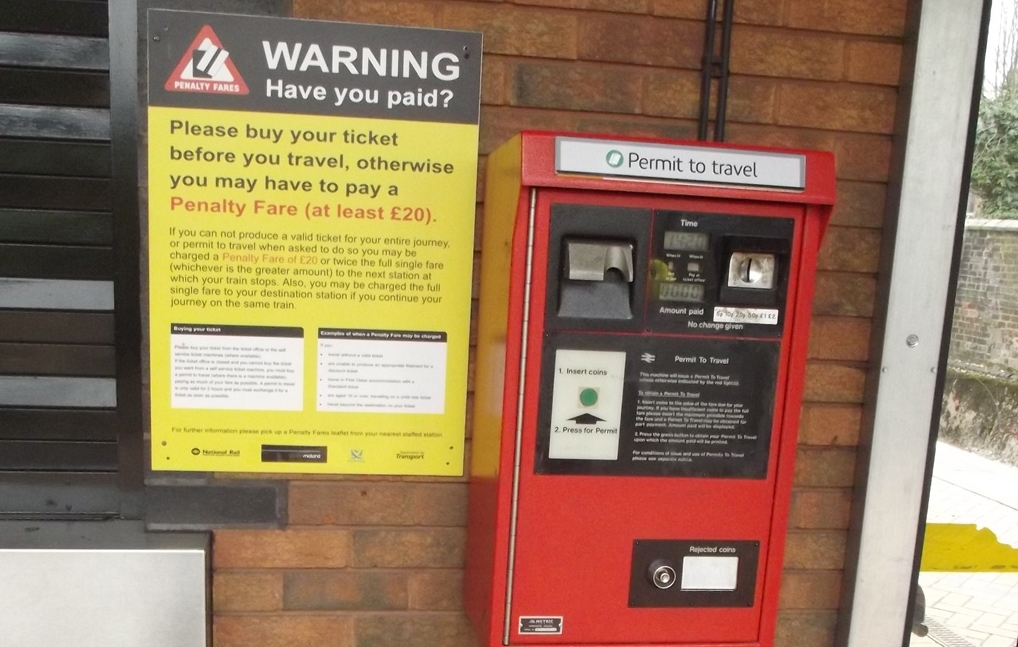Realising that your fare-related case is heading to court can be an alarming experience. You might have received repeated penalty notices, failed to respond in time, or perhaps the transport operator believes your actions were deliberate and warrants stronger legal action. Regardless of how you arrived at this point, fare evasion can escalate into a serious matter with consequences ranging from large fines to a criminal record.
As a veteran solicitor, I've handled numerous fare evasion court cases. In my experience, taking proactive steps and understanding your rights can significantly influence the outcome. This article will guide you through the process of preparing for court, outline what happens if you ignore official notices, and discuss how fare evasion lawyers can help you navigate the legal system.
Why Fare Evasion Leads to Court
Although many fare evasion incidents are resolved at the penalty notice stage, certain circumstances or repeated infractions may push the transport company to seek prosecution. There are several reasons why an operator might decide to take you to court:
- Perceived Intent If they believe you acted deliberately to avoid payment, by using someone else's season ticket, travelling beyond your ticketed zone, or tapping in with insufficient funds, this can raise suspicion of intentional fare evasion.
- Multiple OffencesCommitting fare evasion multiple times suggests a pattern rather than a one-off mistake. Operators generally take a tougher stance when they see repeated violations.
- Ignoring NoticesFailing to respond to penalty fare notices or not paying the required fines within the deadline can lead the transport company to escalate your case.
- High Financial StakesIf the amount of unpaid fares is significant, the operator may consider court action to recoup losses and set a precedent that deters future offenders.
The Importance of Responding Promptly
Once your fare in court date arrives, the magistrates (or, in rare cases, a Crown Court judge if the charge is more serious) will hear your case. You have the right to fair public hearing, ensuring that proceedings remain transparent and that you can present your defence or mitigating circumstances.
1. Financial Penalties
Fines: Conviction can lead to a fine significantly higher than any initial penalty fare.
Costs: You may also be ordered to pay the operator's legal costs and, in some instances, a victim surcharge.
2. Criminal Record
If you are found guilty, a record of your conviction may appear on the Police National Computer. This can affect employment opportunities, visas, or professional licences in the future.
3. Conditional or Absolute Discharge
In some cases, especially if you present strong mitigation or have no previous record, the court might decide on a discharge. An absolute discharge means no further action is taken; a conditional dischargemeans you must stay offence-free for a set period or risk further penalties.
4. Rare Custodial Sentences
It is unusual for first-time fare evasion offences to result in imprisonment, but persistent or severe offences can, in extreme cases, lead to custody. Similarly, anyone trying to avoid or ignore the court's decisions could fall foul of additional offences, risking evasion of sentence if they attempt to sidestep penalties imposed by the court.
Preparing for Your Court Appearance
1. Know the Charge
Carefully read the summons or charge sheet. It should detail what you are accused of, e.g., travelling without a valid ticket under the Railway Byelaws or the Regulation of Railways Act 1889. Understanding the specifics will help you prepare a focused defence.
2. Gather Evidence
Evidence can play a decisive role in fare evasion prosecutions. If you believe a ticket machine was broken, staff gave incorrect advice, or you simply made an honest mistake, collect any documentation supporting your position:
- Photographs (e.g., of malfunctioning machines)
- Bank statements or receipts indicating attempts to pay
- Witness statements from anyone who can confirm your account
3. Seek Legal Advice
Consulting a solicitor who specialises in fare evasion is often a wise choice. A solicitor can:
- Advise if there are forms of evasion of service of sentence or other potential offences you might inadvertently trigger by ignoring court orders.
- Assess whether the operator followed the correct procedures in issuing the penalty or prosecuting.
- Argue mitigating factors, such as illness, financial hardship, or honest mistakes, to reduce the severity of the penalty.
4. Plan Your Defence Strategy
Depending on your case's circumstances, you might plead guilty with mitigation, or you might dispute the charge entirely. Whichever route you choose, prepare clear and concise statements explaining your side. If you can prove that you attempted to pay or genuinely did not realise you had the wrong ticket, ensure your evidence is well organised.
Court Process: What to Expect
- Arrival and Check-InOn the day of your hearing, arrive early. You will check in with court staff and may receive guidance on how the proceedings will run.
- RepresentationIf you have a solicitor, they will speak on your behalf. If you do not, you will need to present your own defence or mitigation. Remember, you have the right to fair public hearing, which means the court must allow you an opportunity to be heard and present evidence.
- Prosecution's CaseThe operator's legal representative (or prosecutor) will outline the alleged fare evasion and present supporting evidence.
- Defence and MitigationYou (or your solicitor) will then have the opportunity to contest the evidence or provide mitigating factors. If you admit the offence, you can explain why it happened and any reasons the court should consider a lesser penalty.
- Verdict and SentencingThe magistrates or judge will decide whether you are guilty or not guilty. If found guilty, they will impose a penalty. If you have a solicitor, they can help you understand the sentence and any payment deadlines or obligations.
- Payment and ComplianceYou will be informed how to pay fines or charges. Delays or refusal to comply could be treated as evasion of sentence, and additional penalties or enforcement actions can follow.
Working with Fare Evasion Lawyers
Enlisting professional help does not automatically guarantee a case dismissal, but it can make a substantial difference. Experienced fare evasion lawyers can:
- Negotiate Out-of-Court Settlements: Where possible, they may reach an agreement with the operator for a financial settlement in lieu of a formal criminal conviction.
- Build a Strong Legal Defence: If you genuinely have evidence supporting your innocence or mitigating reasons, a solicitor will know how best to present your case.
- Minimise Penalties: Skilled representation can highlight personal, financial, or medical circumstances that justify a reduced fine or a conditional discharge instead of a heavier sanction.
The decision to hire a lawyer often comes down to the complexity of your case, the severity of the allegations, and your concern about potential long-term consequences like a criminal record.
Avoiding Additional Legal Pitfalls
When facing legal proceedings, attempting to avoid or ignore them can compound your troubles. Deliberately failing to comply with court instructions is among the more severe forms of evasion of service of sentence. For instance, if you are given a fine or mandatory community service and choose not to comply, you may face re-arrest and stricter penalties.
Moreover, skipping your hearing or providing false information to the court can lead to separate offences. Always engage with the process honestly and promptly, whether you are challenging the charges or mitigating them.
Conclusion
Facing court for fare evasion is a daunting prospect, but understanding your rights and acting responsibly can mitigate some of the stress. Whether you are worried about paying large fines, protecting your criminal record, or simply want to ensure you receive fair treatment, the best approach is to engage with the legal process from the start.
- Respond Promptly to any notices or summons.
- Gather Evidence that supports your side of the story.
- Consider Professional Advice from fare evasion lawyers who can guide you through negotiations and, if necessary, represent you in court.
Remember that you have the right to fair public hearing. By preparing carefully, presenting any mitigating factors clearly, and seeking expert guidance when needed, you stand a better chance of achieving a balanced outcome, one that addresses the operator's concerns while protecting your best interests.



